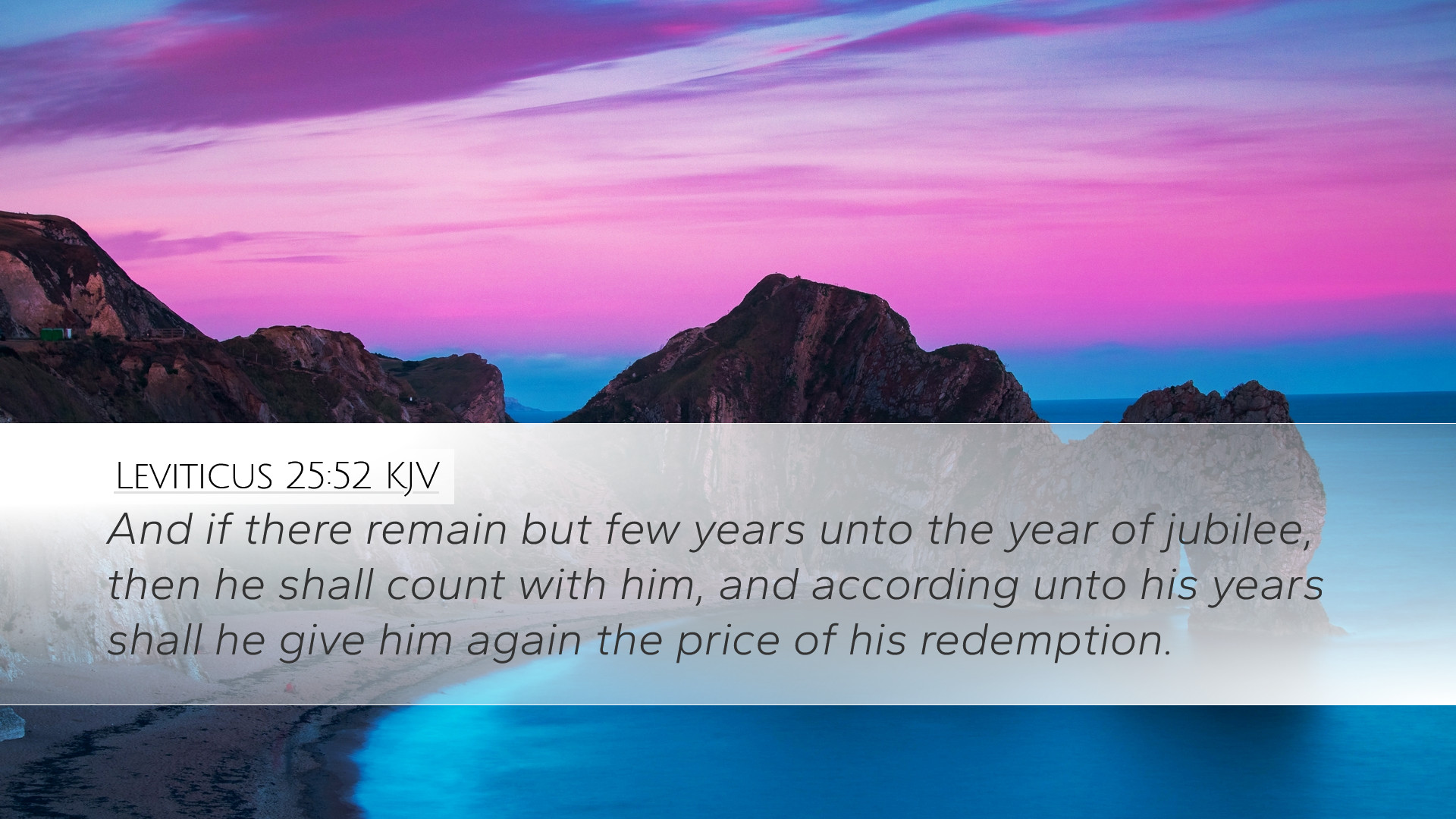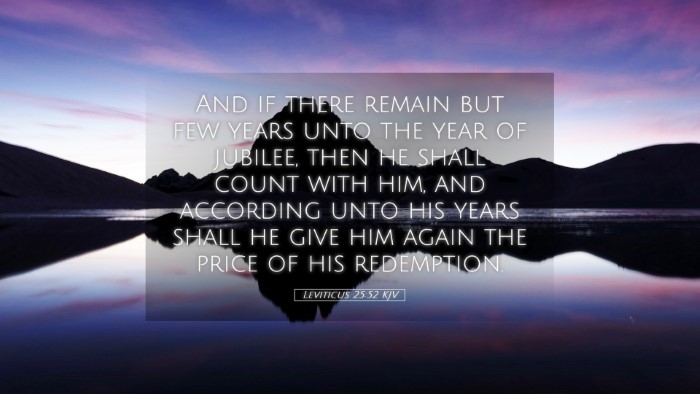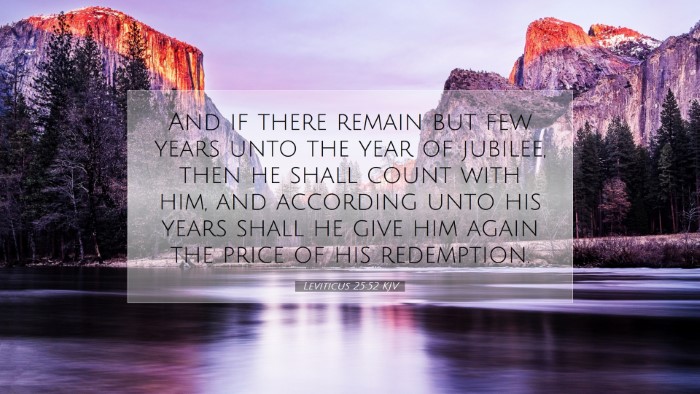Commentary on Leviticus 25:52
Verse Context: Leviticus 25:52 states, "And if there remain but a few years unto the year of jubilee, then he shall count with him, and according unto his years shall he give him again the price of his redemption." This verse is situated in the context of the laws governing the Hebrew Jubilee—an ordinance signifying restoration, freedom, and the reconnection of people to their ancestral lands and families.
General Insights
This verse highlights a critical aspect of social justice and the merciful provisions in the Mosaic Law. The Jubilee year emphasized the reality of God's ownership over the land and the well-being of His people. It was designed to prevent perpetual poverty and the fragmentation of familial bonds.
Key Themes
- Redemption: The concept of redemption is pivotal in this passage, where the individual is allowed to reclaim their property based on the time remaining until the Jubilee.
- Grace and Mercy: The provision reflects God's grace, providing a way for individuals to restore their fortunes.
- Community Responsibility: Underlying this commandment is the notion of communal responsibility; the welfare of each member is a priority.
Commentary Excerpts
From Matthew Henry
Matthew Henry comments on the significance of arranging the redemption price according to the years left until the Jubilee. He notes that this system not only prevents exploitation but also illustrates God's fairness and concern for the oppressed. Henry emphasizes that the counting of years until the next Jubilee is a reminder of the temporality of worldly gains and the ultimate return of all to its rightful owner—God.
From Albert Barnes
Albert Barnes provides insight into the practicality and mechanics behind this redemption system. He elaborates on how the pricing structure serves to ensure equity, allowing those in debt a pathway to freedom. Barnes points out how this law encourages faithfulness in stewardship, as it places motivation for responsible management of resources that must eventually be returned.
From Adam Clarke
Adam Clarke expounds on the emotional and relational components of the Jubilee system. He argues that the ability to redeem one’s property fosters hope and maintains family integrity. Clarke underscores that this law is not merely a market transaction but is deeply rooted in covenantal relationships that reflect God's redemptive plan for humanity.
Theological Implications
The theological significance of Leviticus 25:52 cannot be overstated. It encapsulates themes of restoration, hope, and eternal values. In a broader biblical context, this practice foreshadows the redemptive work of Christ, where humanity is given the opportunity to reclaim what was lost through sin. The redemption price parallels the sacrificial system pointing towards Christ’s ultimate sacrifice that fulfills the laws established in the Old Testament.
Historical Context
In the historical context of Israel, the Jubilee year represented a social reset, a profound act of grace emphasizing God's compassion for the marginalized. Understanding this context allows theological students and scholars to grasp the transformative implications of living in a community aligned with God's justice.
Practical Applications
For contemporary application, Leviticus 25:52 invites modern readers to consider the following:
- Restorative Justice: Engage in restorative practices within our communities to mend broken relationships and support the marginalized.
- Hope in Redemption: Share the message of hope that comes from Christ’s redemptive work, emphasizing the importance of forgiveness and restoration.
- Community Support: Work towards systems of support that mirror the jubilee principle, where individuals can find assistance and resources through communal efforts.
Conclusion
Leviticus 25:52 serves not only as a legal statute within the Mosaic Law but as a rich theological framework that underpins God's redemptive narrative throughout scripture. The insights from commentaries highlight the enduring relevance of this passage, prompting modern believers, theologians, and scholars to reflect on the implications for justice, mercy, and community in the light of God's eternal truths.


